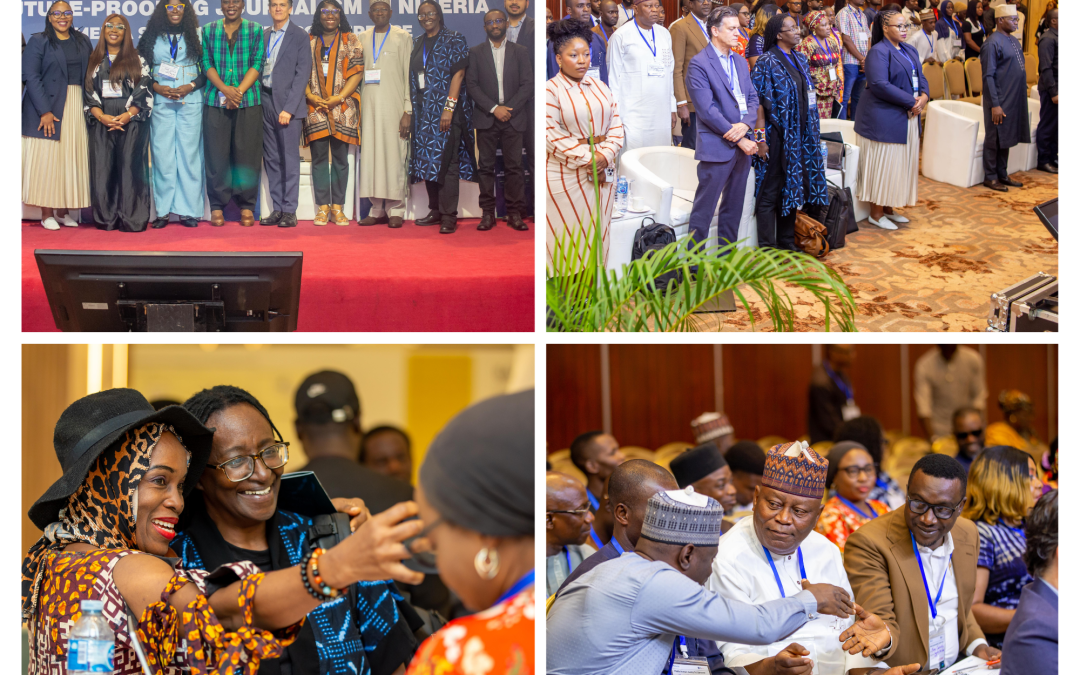Abuja, Nigeria – The Media Development Investment Fund (MDIF), in partnership with the Daily Trust Foundation, successfully hosted a two-day Media Sustainability Conference in Abuja from July 30–31, 2025. The event brought together over 200 participants, including journalists, editors, newsroom managers, media entrepreneurs, and policy advocates, to explore the theme: “Future-Proofing Nigeria’s Journalism Media – A Sustainability Dynamic.”
Held at the Abuja Continental Hotel, the conference served as a national convening of leading voices shaping the future of independent media in Nigeria. The event spotlighted lessons, tools, and innovative approaches that can help newsrooms thrive in an increasingly complex and digital media landscape.
Empowering the Future of Journalism
Opening remarks were delivered by Malam Bilya Bala, Chairman of the Daily Trust Foundation, and Harlan Mandel, CEO of Media Development Investment Fund. Both emphasized the urgency of strengthening business models for journalism without compromising editorial independence.
Keynote speaker Dr. Kole Shettima of the MacArthur Foundation underscored the need for media organizations to play a central role in national accountability, while leveraging sustainable practices. A second keynote by Kabir Yusuf, Chairman of Media Trust Group, also discussed the evolution of Nigeria’s major media institutions and how to future-proof operations.
A central highlight of the event was the premiere of a documentary chronicling the Nigerian Media Innovation Program (NAMIP)—a three-year initiative supporting digital transformation and sustainability among independent media. Data-driven insights presented by Deji Adekunle and Dara Ajala revealed the measurable impact of NAMIP, from improved audience engagement to diversified revenue streams.
Critical Conversations and Revenue Solutions
Throughout the conference, panelists and speakers tackled key themes such as:
- The launch of a Media Sustainability Research Report, presented by Professor Umaru Pate.
- The role of leadership in building agile and sustainable media enterprises.
- Reflections from NAMIP’s Advisory Committee on shaping Nigeria’s media landscape.
- Experiments and success stories in revenue generation, including insights from media leaders like Yusuf Omotayo (The Republic), Toun Okewale-Sonaiya (Women Radio), Fran Beighton (Daily Maverick), and many more.
Practical Playbooks and Forward-Looking Strategies
Attendees participated in hands-on sessions led by industry experts, including:
- Fu’ad Lawal on building practical, defensible newsroom revenue models.
- Temitayo Akinyemi and Dara Ajala on aligning editorial missions with product development and audience insights.
A Blueprint for Resilient Media
As the conference drew to a close, Dr. Theophilus Abbah, Programme Director at Daily Trust Foundation, delivered inspiring remarks that emphasized the collective commitment of participants to preserve and protect journalism in Nigeria. The NAMIP Sustainability Conference proved to be a significant occasion, offering attendees valuable insights into the challenges and opportunities facing the media landscape.
Throughout the event, speakers and panelists shared their expertise on various topics, ranging from best practices for financial sustainability in a rapidly changing market to the impact of digital technology on journalism. The conference not only provided actionable strategies but also encouraged the formation of new partnerships among media professionals, industry stakeholders, and civil society organizations.
Participants left with a renewed sense of purpose and a toolkit of strategic frameworks designed to help them navigate the economic challenges in the media industry, adapt to ongoing digital disruptions, and respond effectively to societal transformations. The event underscored the critical importance of independent media in fostering democratic ideals and ensuring that a diversity of voices is heard in the public discourse. As they departed, attendees were equipped with both inspiration and practical solutions to strengthen their organizations and contribute positively to the media ecosystem in Nigeria.
You can catch up on the conference by watching these live streaming sessions for Day 1 and Day 2.

